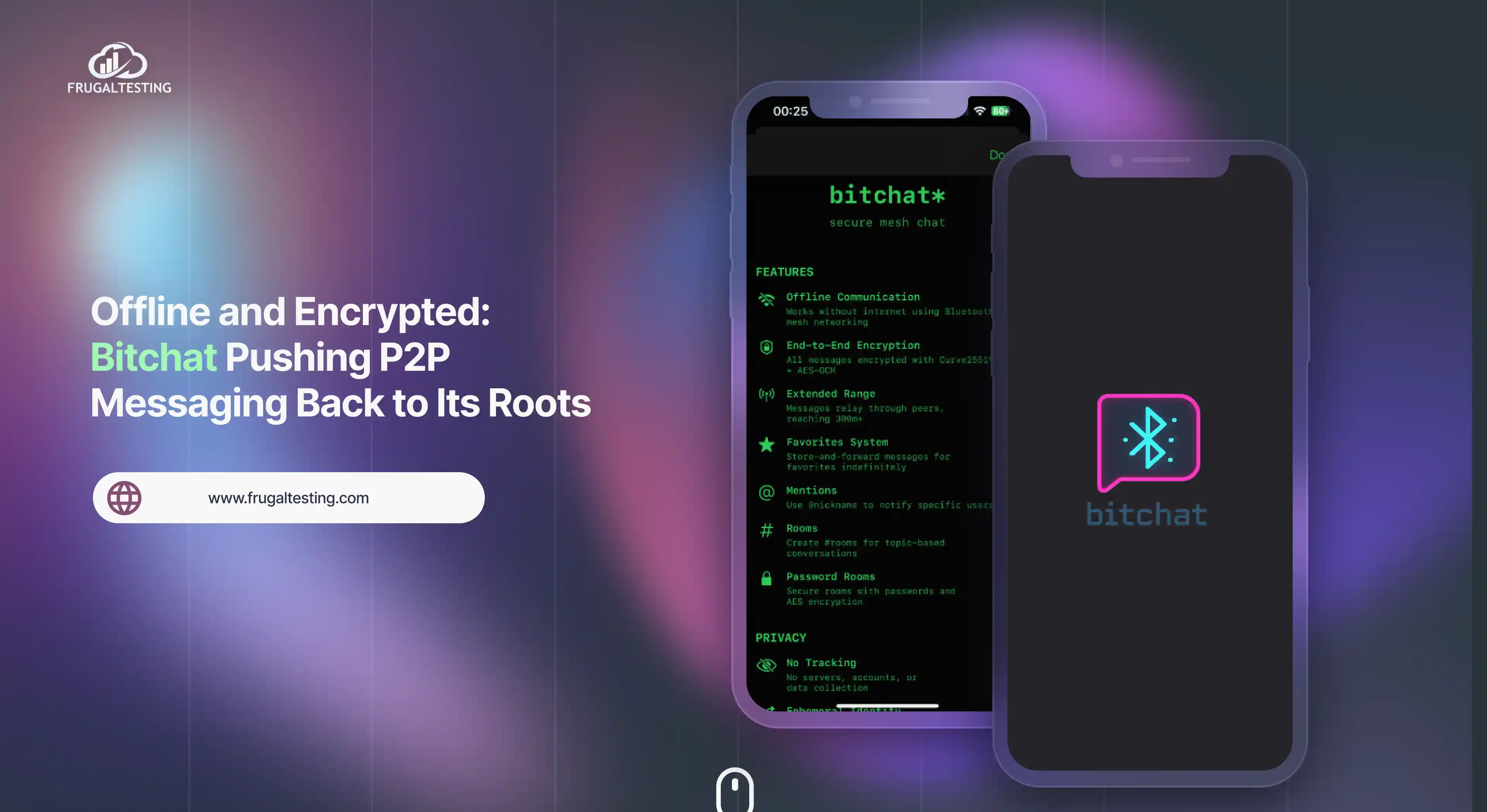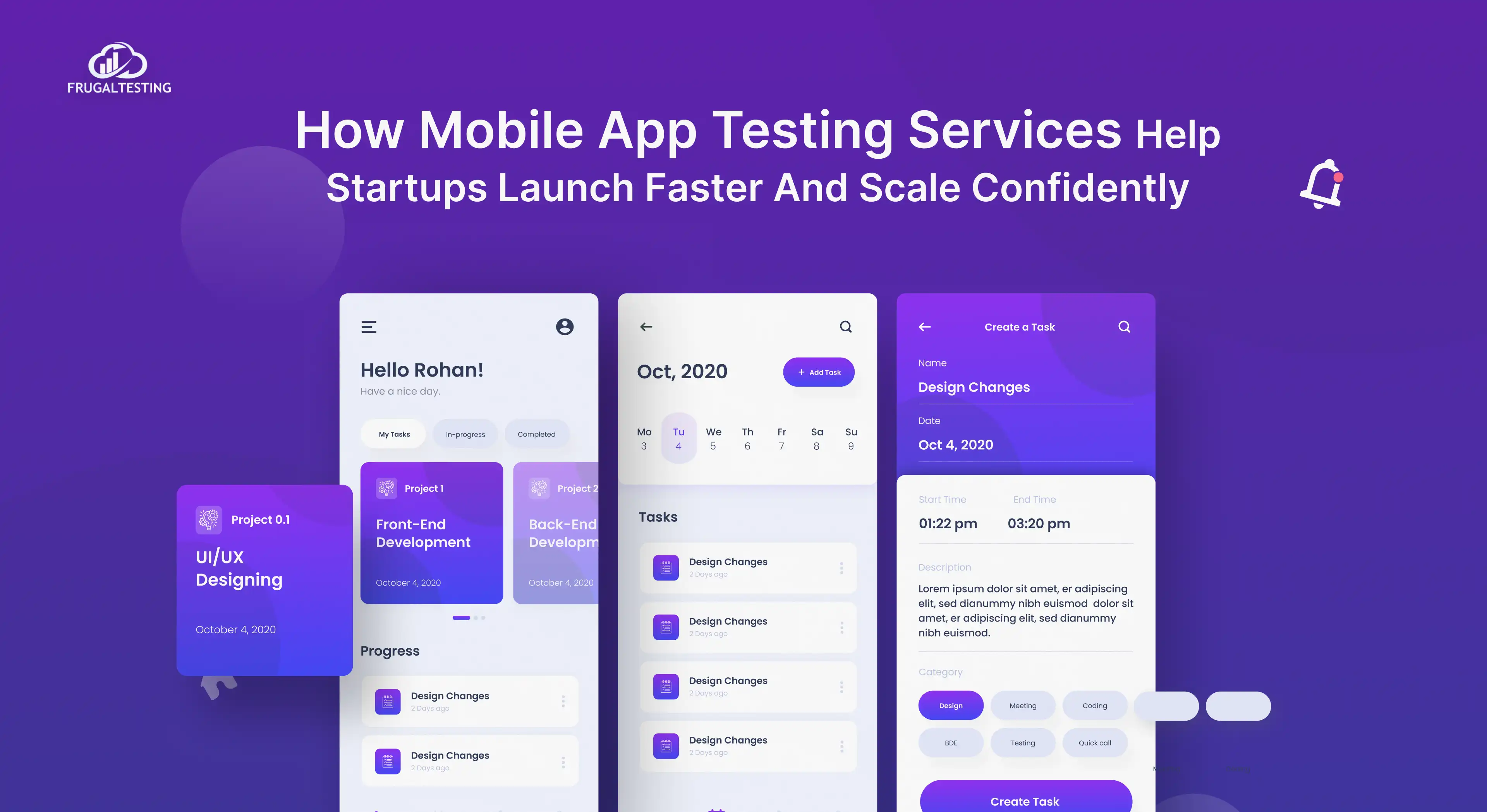🚀 California is a key national technology space, helping create 10,612 jobs in the software testing area. As an obvious reason, we can attribute it to the fact that the state is proud to be among the world leaders in technology and software testing, which is only a natural task to take care of. On average, software testers in California earn a wage that is indeed rather high at around $90,903. Although the software industry in California has remarkable features like innovations, good strategies, and the latest technology, it still faces social problems.
Key Takeaways:
📌 Evolution of Testing Trends: Research on the software testing trends such as shift-left testing, automation, AI integration, and continuous testing that are changing the software development landscape in California is what this text is all about.
📌 Emerging Technologies: Learn how AI, blockchain, IoT, edge computing, XR, and 5G technology determine the software testing practices in California and, thus, drive innovation and competitiveness.
📌 Business Impact: Understand the seismic effect of software testing trends on California's businesses and industries, from gaining a competitive advantage to helping with regulatory compliance and customer satisfaction.
📌 Challenges and Opportunities: The article discusses software testing in California, from cybersecurity threats to handling complex systems and legacy infrastructure.
Get involved with us as we start our trip, which will reveal to you the key to succeeding technologically in the busiest IT sector in the world. ✨

What are Software Testing Trends, and why are they important for California in 2024?
📊By the end of 2024, the underlying software testing trends will progress and be equipped to overcome the fast-changing technological world issues, challenges, or hurdles.
- Shift-Left Testing: This plan involves testing products in the early stages of the development cycle. Thus, problems can be detected and solved much faster. Testing is implemented into the development process so teams can find issues earlier, reducing the cost of fixing them later.
- Automation: Automation remains the major trend in software testing, powered by the requirement of quicker release cycles and the enhancement of efficiency. Automation tools and frameworks make repetitive testing tasks easier and faster, so human testers can be left with more complex scenarios to work on.
- AI and Machine Learning in Testing: Artificial intelligence and machine learning technologies are increasingly being utilized to improve various aspects of software testing. This covers creating test cases, anomaly detection, and predictive analytics used to identify probable issues before they happen.

- DevOps and Agile Testing: DevOps and Agile methodologies are still the driving force of collaboration and how software development and testing are done most efficiently. The testing methods are being revised to match the models. Thus, the focus has been shifted to continuous feedback and iteration speed.
- Continuous Testing: Testing has become necessary when implementing CI/CD practices. It involves automated tests at different stages of the development pipeline to guarantee that the software is always in a releasable state.
- Security Testing: Cyber threats and data breaches are increasing, and security testing is now more necessary than ever. Security testing is integrated into organizations' development processes to find and fix vulnerabilities before the software is deployed.
- Performance Engineering: Performance testing and optimization are becoming more important as applications become more complex and user expectations grow. Performance engineering comprises scalability, responsiveness, and reliability tests under different load conditions.
🔍 California is recognized as the home of technological innovations where many tech companies, large or small, are based. It is, therefore, important to keep pace with the latest updates on testing trends. Modern programming testing practices of the state's tech industry are designed to secure high-quality, reliable software that satisfies user demands.
Does ensuring the testing methodology of companies comply with the related regulations and safeguard sensitive data become increasingly important in the era of privacy and data protection? In general, the acceptance of these trends in software testing innovates Californian businesses in the global market. What do you believe will become the major new trend in software testing?

Examples of successful Testing strategies in California
🔍 Here are a few examples of successful testing strategies implemented by companies in California:
While looking for the most effective testing strategies, we bumped into some exciting examples from some businesses in California. Have you heard of these innovative practices they have been successful with?
🧩 Google's Testing Strategy: Google prioritizes testing processes, using cutting-edge frameworks like Tricorder and Test Mercenaries to automate product and platform testing and guarantee software quality and reliability.
🧩 Salesforce's Agile Testing Approach: Salesforce, a CRM software developer from San Francisco, uses agile testing methodology, which involves maintaining product stability through regression tests and continuous development of new features.
🧩 Netflix's Chaos Engineering: Netflix, located in Los Gatos, California, employs chaos engineering to test its infrastructure's ability to work in a crisis and find its weak points. Hence, it can provide its services to millions of users all over the world without any interruption.
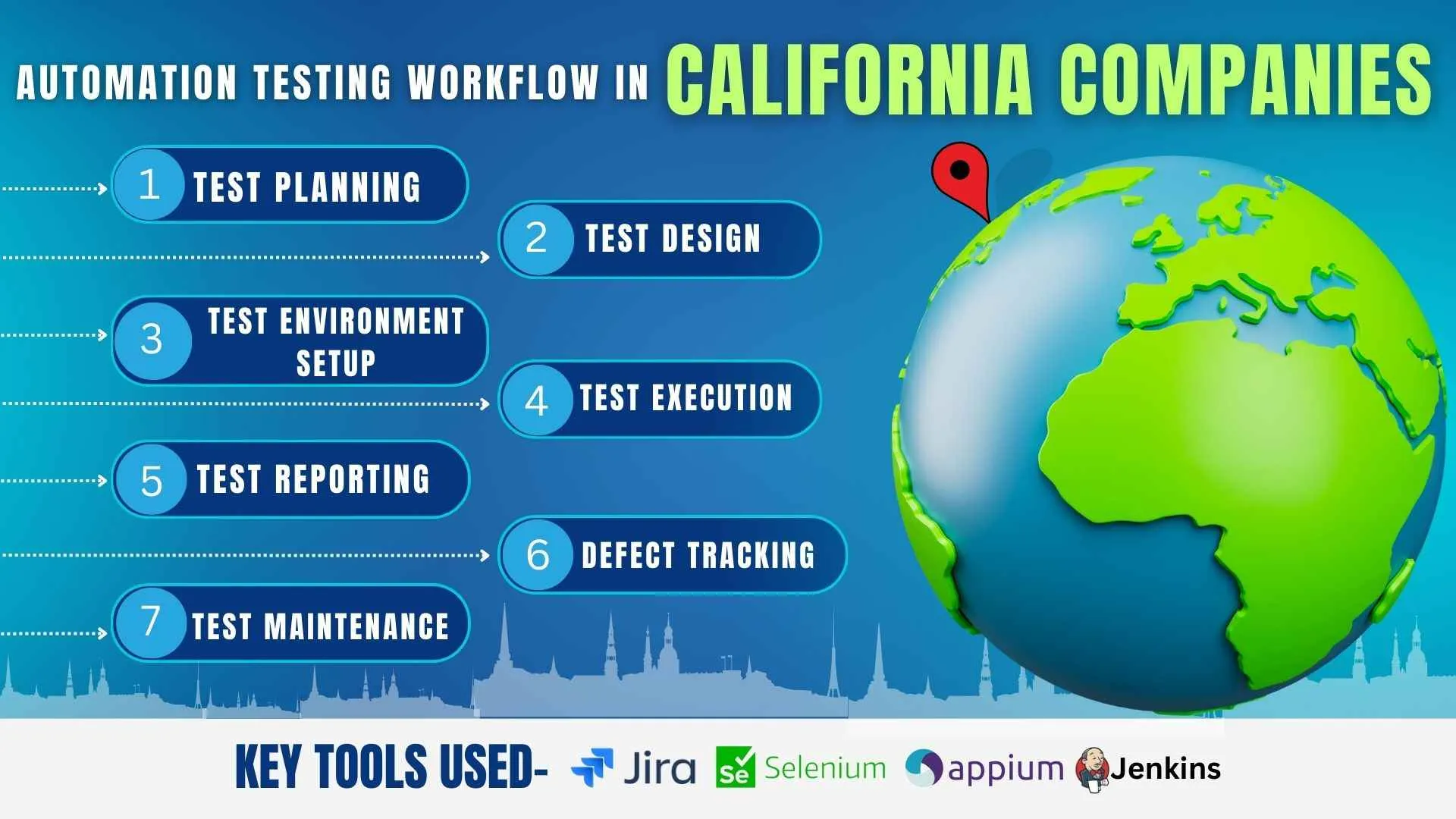
🧩 Apple's User Experience Testing: Apple concentrates on product user experience by conducting extensive usability testing, which is aimed at product design, accessibility, and intuitive interfaces, thereby making products powerful yet user-friendly.
🧩 Uber's Testing for Scalability: Uber, a San Francisco-based ride-sharing platform, values scalability highly in its testing strategy. Thus, it simulates peak loads and analyzes system performance to ensure fluctuating demand will not compromise service quality.
It is astonishing to realize that California companies perfectly suit their testing to meet the specific needs and challenges of the companies. It amazes us even more when we see how they have achieved success by doing that through quality, innovation, and customer service.

Emerging Technologies Influencing Software Testing Trends in California for 2024
💼 Have you heard about the advanced tech innovations that have taken place in California recently? They are pioneers in the software testing field in 2024.
📌AI and Machine Learning: California-based companies in the USA use AI and machine learning technologies in software testing to automate the process, detect defects, and speed up testing cycles.
📌 Blockchain: Blockchain technology is changing software testing. Companies in California are using blockchain-based solutions to check the security, integrity, and performance of blockchain applications by introducing special approaches.
📌Internet of Things (IoT): California companies are investing in IoT testing frameworks and tools to ensure that their IoT solutions are working and of good quality and to solve the issues unique to the tech-savvy environment.

📌Edge Computing: Edge computing in California's tech hubs is revolutionizing software development, deployment, and testing, necessitating testing at the edge to ensure that the software is efficient and reliable.
📌Extended Reality (XR): California-based businesses are at the forefront of creating XR testing paradigms to verify immersive experiences, spatial interactions, and device compatibility in the entertainment and gaming industries.
📌5G Technology: 5G networks in California are revolutionizing software testing by facilitating faster data transfer rates and reduced latency. Hence, efficiency and effectiveness become much higher across geographically diverse locations.
These new technologies are pushing the development and innovation of California's software testing future. By accepting these trends, California-based companies can be the first to offer new and innovative software products, allowing them to stay ahead of the curve and maintain their competitiveness in the ever-changing tech industry. We predict these enhancements will affect the software testing scene in the region.

Will Software Testing Trends impact businesses and industries in California in 2024?
🛠️ It is like California is always at the cutting edge of innovating new software testing technologies. We are curious: do you think California's companies fully benefit from these trends? How will these trends define their competitive edge in the tech industry:
- Competitive Advantage: Adopting the new software testing trends enables businesses in California to stay on top of their industry competitors. Thus, the companies can be sure that their software products are of high quality, reliable and secure and thus can differentiate themselves in the market and attract more customers.
- Innovation and Productivity: Modern testing methodologies and technologies should be adopted to encourage innovation and improve productivity. California-based firms that stay on the edge of software testing trends can reduce development processes, speed up time to market, and provide innovative solutions that meet changing customer needs.
- Cost Savings: California businesses' proper software testing practices can help save costs by spotting and fixing defects early in the development cycle. Thus, detecting issues before reaching production allows companies to reduce the likelihood of expensive recalls, the time lost because of downtime, and the bad reputation associated with faulty software.
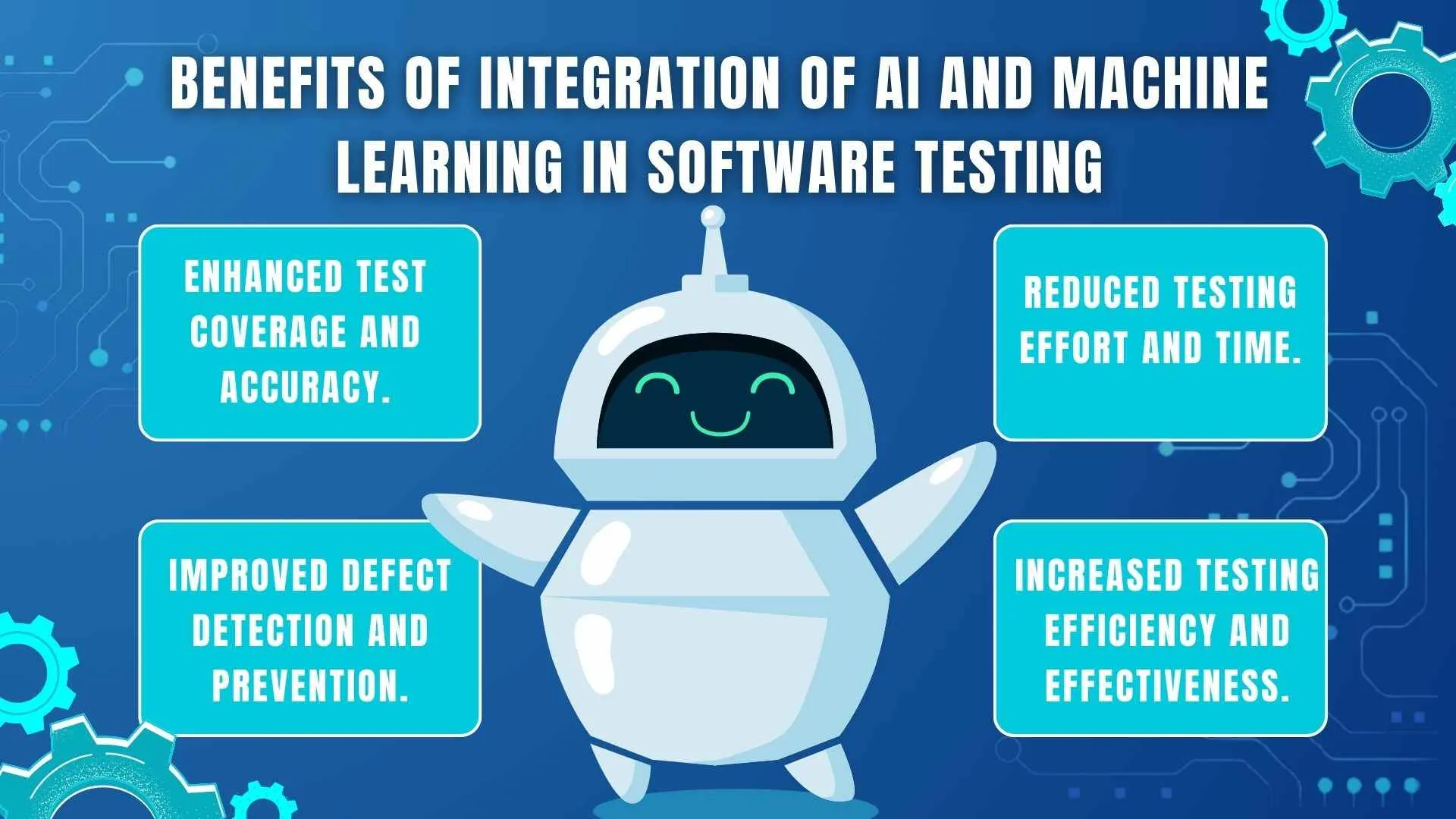
- Regulatory Compliance: Compliance with regulations and standards is vital in fields like health, finance, and automotive. Software testing trends are very important in guaranteeing regulatory compliance by ensuring that the software conforms to industry-specific standards, data privacy regulations, and security regulations.
- Customer Satisfaction: Customers need high-quality software products, and they will remain with the company. California businesses can produce high-quality, consumer-friendly software that corresponds to customer demands through effective testing strategies, which will increase customer satisfaction and loyalty.
- Risk Mitigation: Software defects and security vulnerabilities are the key problems businesses should be concerned about. These problems pose very high risks to businesses, including financial losses, legal liabilities, and damage to brand reputation. The testing is not completed yet, so the risks are not as serious as they are now.
- Adaptation to Emerging Technologies: Software testing tendencies also make it possible for businesses in California to cope with new technologies such as AI, IoT, blockchain, and edge computing. By testing these technologies, companies can take advantage of their advantages and be sure of their compatibility, reliability, and security.
It is amazing how software testing trends have become such game changers for local businesses in California's tech scene. How do companies find the right way through these trends and remain the leaders in such a dynamic environment? And what do you suggest is the top challenge of following these trends for growth and industry leadership?
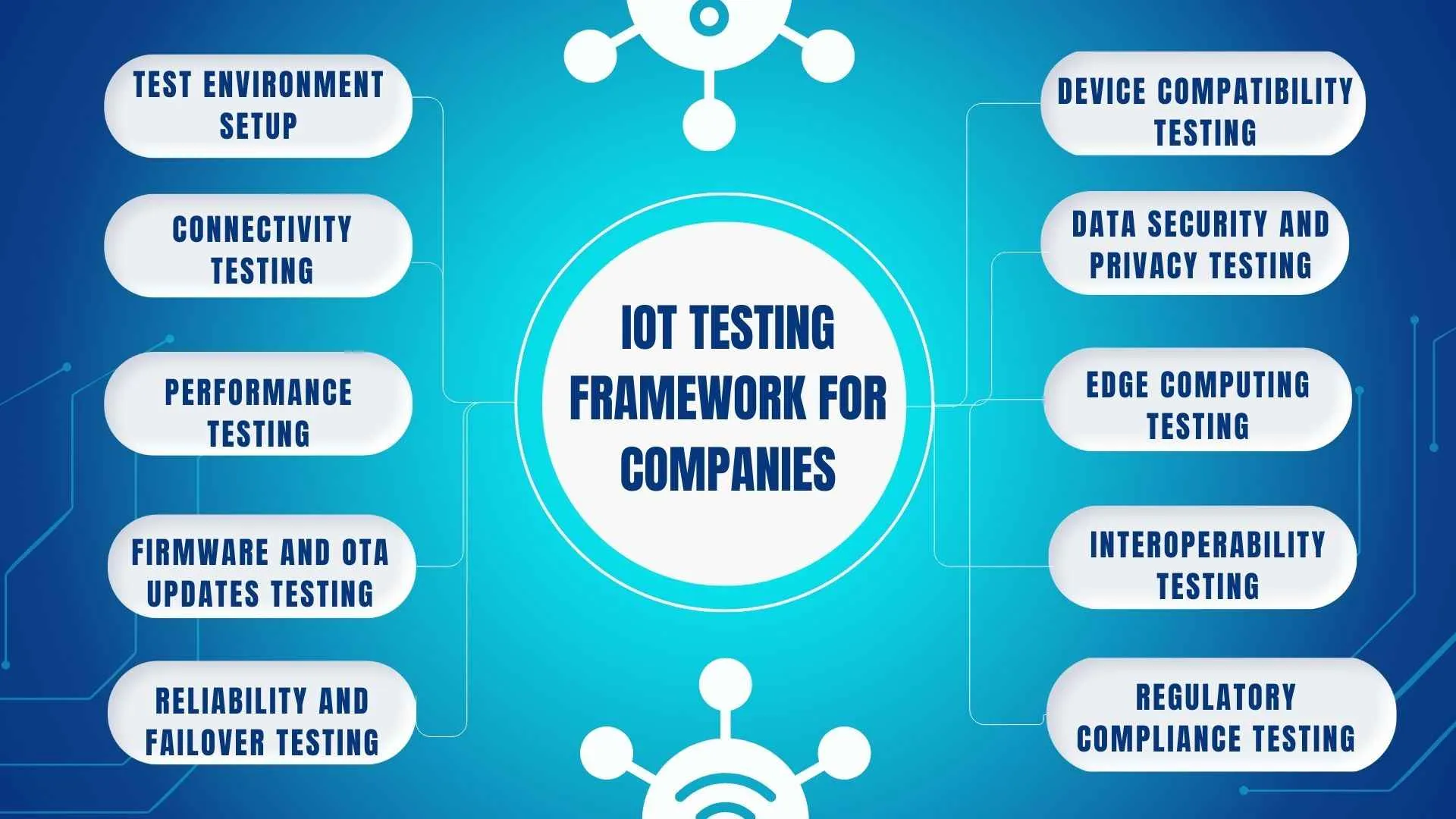
The impact of blockchain on software testing in California
🌐 Have you been aware of how blockchain revolutionized software testing in California? It's something! Let’s add to your understanding of why blockchain is a game-changer here :
🧩 Security and Integrity: California companies have developed new testing methods to ensure that the blockchain-based applications are secure, the data are consistent, smart contracts operate correctly, and are not tampered with.
🧩 Complexity and Interoperability: Because of their complexity, blockchain ecosystems in California need to be tested specially to ensure that they work well and are interoperable and compatible with the existing infrastructure and legacy systems.
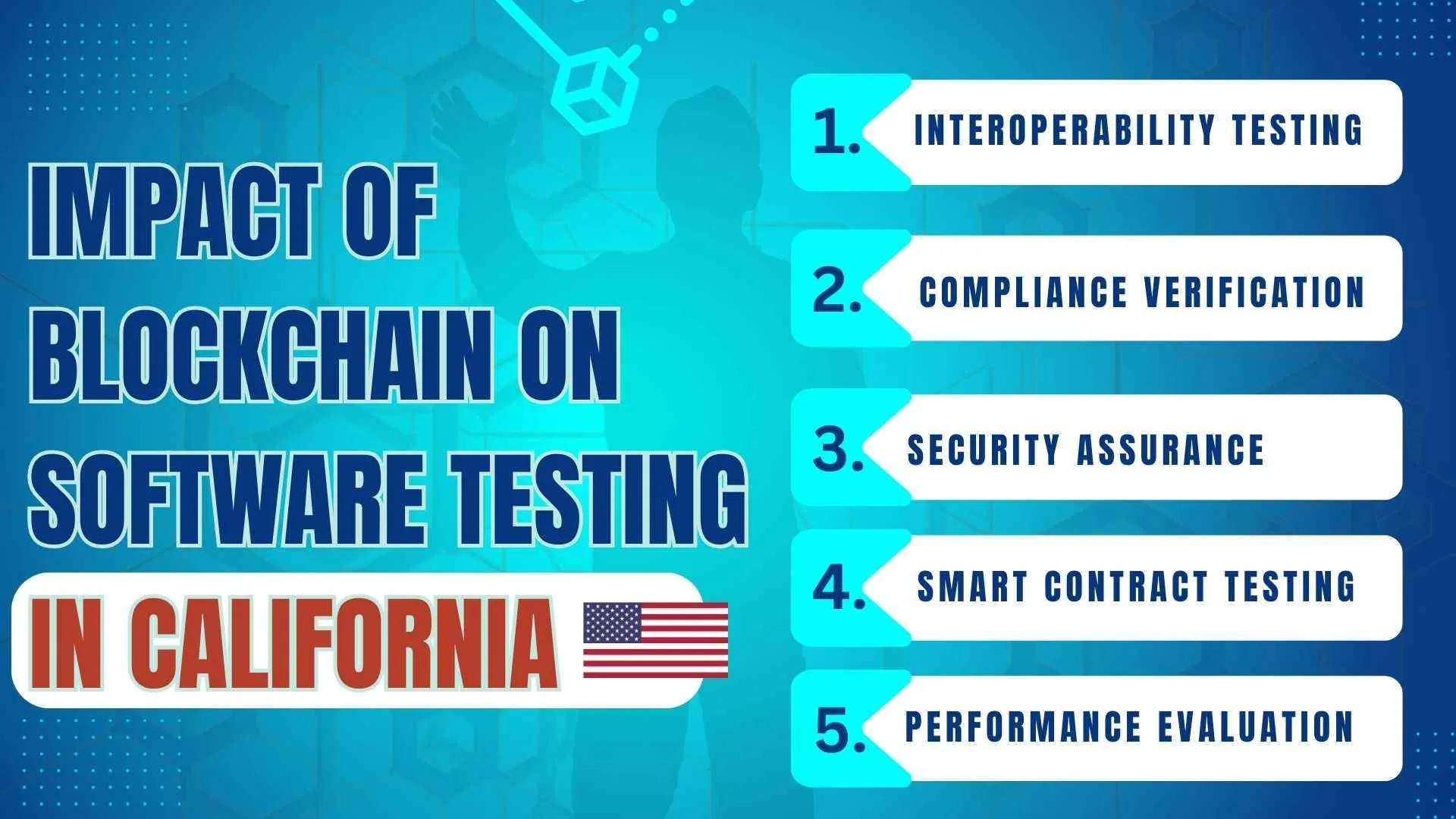
🧩 Performance and Scalability: The California companies are constructing testing frameworks to assess throughput, latency, and network congestion under different load conditions. Thus, the blockchain networks are efficient and scalable.
🧩 Regulatory Compliance: California firms are now in the testing phase of blockchain solutions to ensure compliance with data privacy and financial regulations, especially in finance, healthcare, and supply chain management.

💡 Are you aware of how vital cybersecurity has become in the software testing trends of California companies in 2024? It's hitting home now. Let’s see what’s boosting this significance and how it is transforming the testing environment:
- Protection Against Cyber Threats: Cybersecurity is the most important issue for California-based organizations, and software testing finds vulnerabilities and weaknesses. Cybersecurity is integrated into processes, which help proactively mitigate security risks.
- Compliance with Regulations: California data privacy laws, especially the California Consumer Privacy Act (CCPA) and the California Privacy Rights Act (CPRA), require organizations to have strong cybersecurity measures, such as secure software development practices and thorough vulnerability testing, to avoid fines and legal repercussions.
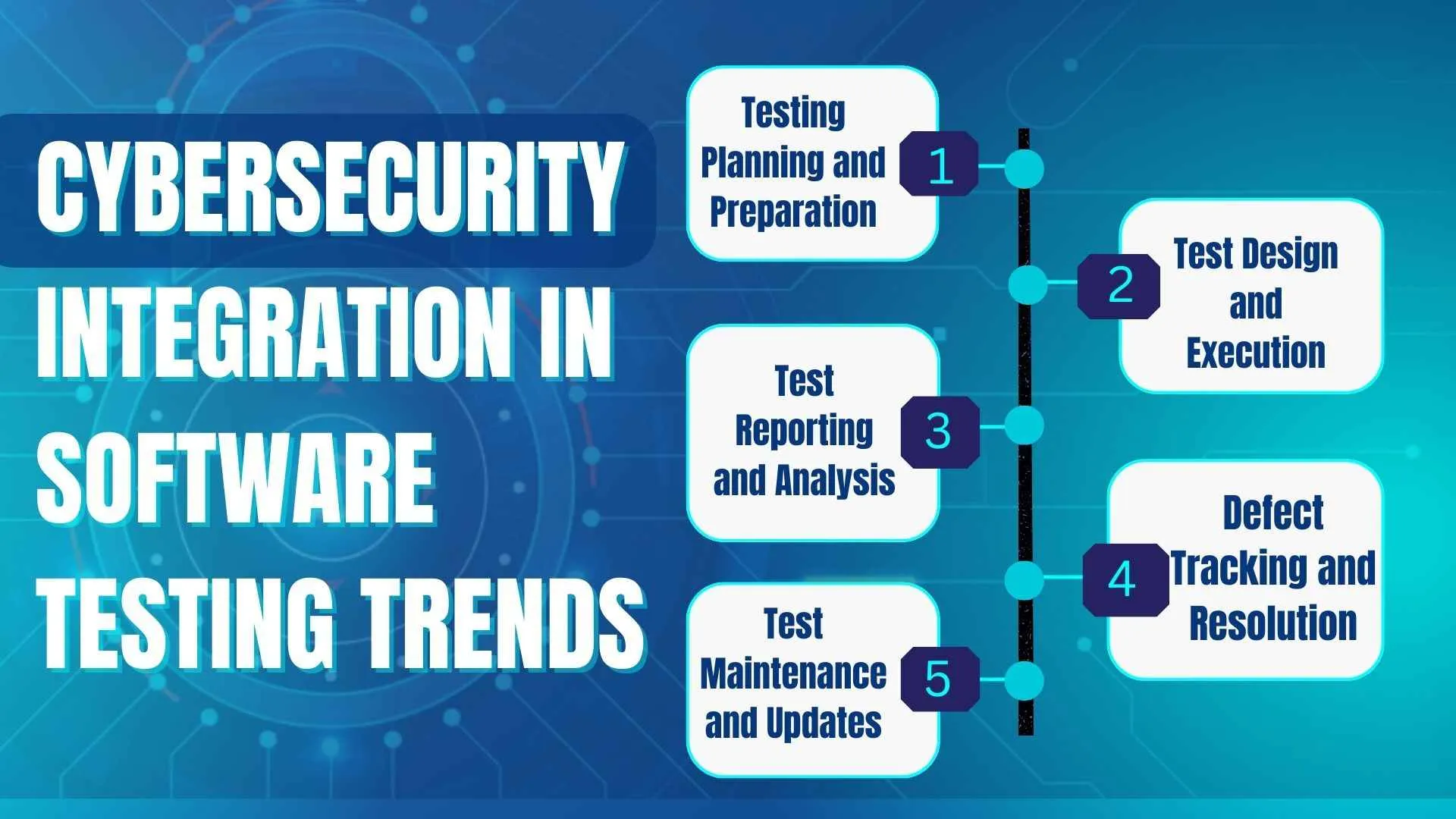
- Protection of Sensitive Data: California organizations prioritize data security to maintain customers' trust and loyalty. Software testing is a tool for discovering weaknesses and applying security solutions.
- Securing Connected Devices and IoT: California-based organizations have to face the cybersecurity problems created by IoT devices; hence, software testing has to be done to find the firmware, encryption protocols, and communication channels that will ensure secure ecosystems.

Challenges and opportunities for implementing Software Testing in California
📈 You must have known by now that the effective deployment of software testing starting in the year 2024 would certainly entail its own set of challenges and opportunities. It's quite a blend of the good, the bad, and the ugly, let’s see how:

Closing Thoughts
💡 It is interesting to see how California's tech testing industry builds itself up and is not afraid of innovations. Now, think of what is next to come with aspiring trends like shift-left testing or AI-based testing. To us, likely, the state can better use the chances to ensure that the companies will simultaneously emerge as the leaders of other existing trends and remain competitive in the face of a continually changing tech landscape.
California's tech community is filled with the true magnitude of dynamism. Computers take away a lot of manual work and give us a chance to test more, and this is like the tech world going to turbo speed mode and producing top-notch software.
We will end this discussion with a question for you to ponder: what approaches do you think California businesses should use to survive in this continuously changing technological environment? 💡
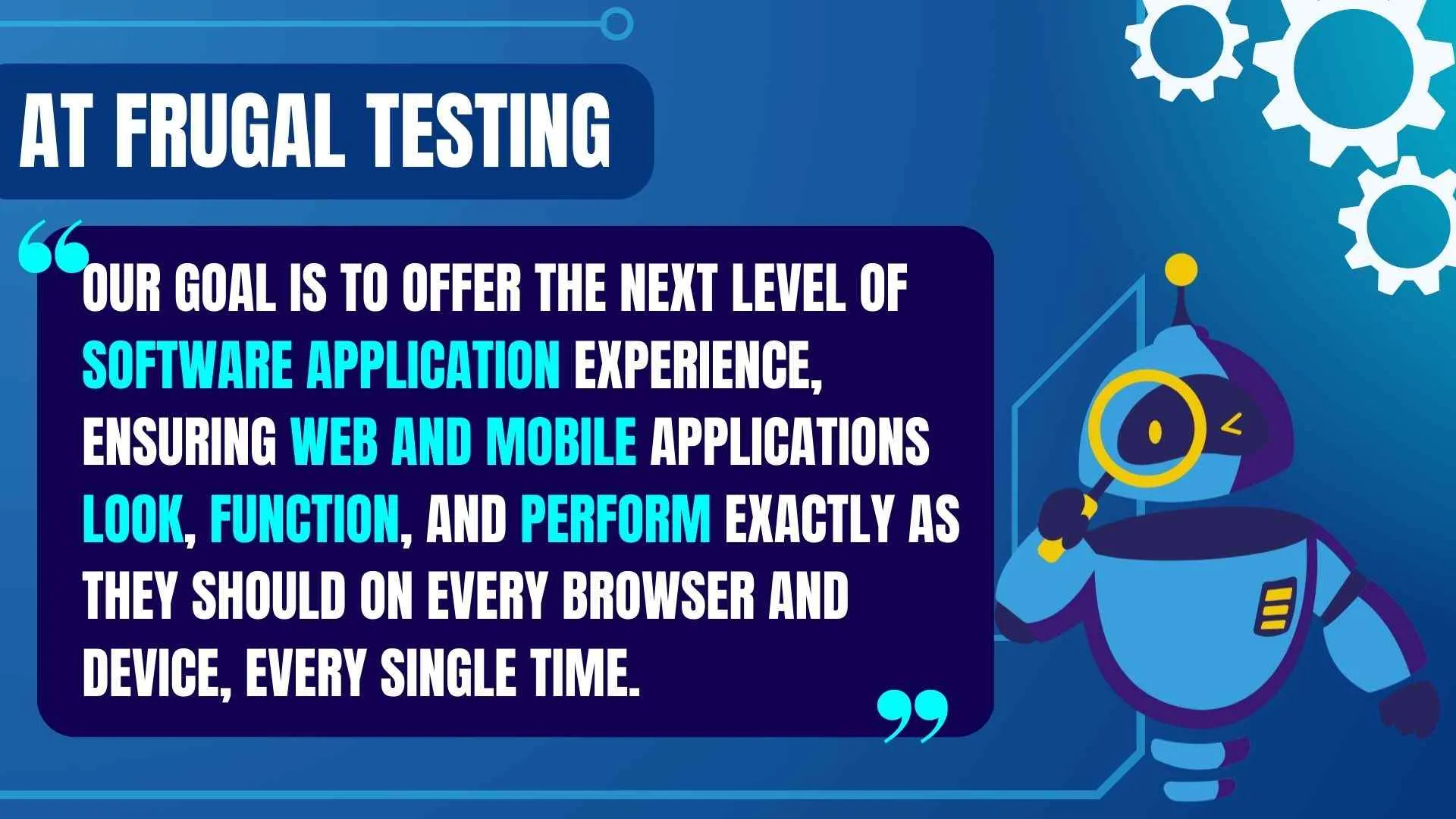
People also Asked
👉🏻 How do software testing trends contribute to California's position as a global tech hub?
Software testing trends bolster California's global tech hub status by fostering innovation and ensuring the reliability and quality of cutting-edge technologies developed in the state.
👉🏻 How do testing trends affect user experience in California?
Testing trends enhance user experience in California by ensuring that software applications are thoroughly tested for functionality, performance, and security, resulting in seamless and satisfactory user interactions.
👉🏻 What's new in mobile app testing for California?
In mobile app testing for California, there's a focus on automation, AI-driven testing, and compatibility testing across diverse platforms and devices to meet the evolving demands of the mobile market.
👉🏻 Does testing trends align with California's innovation goals?
Testing trends align with California's innovation goals by promoting agile methodologies, continuous integration, and DevOps practices, enabling rapid and iterative development cycles that drive innovation and product excellence.
👉🏻 What trends are emerging in mobile app testing, specifically in the California market?
Emerging trends in mobile app testing in the California market include adopting progressive web apps, increasing emphasis on security testing, and leveraging cloud-based testing platforms to ensure scalability and efficiency in testing processes.



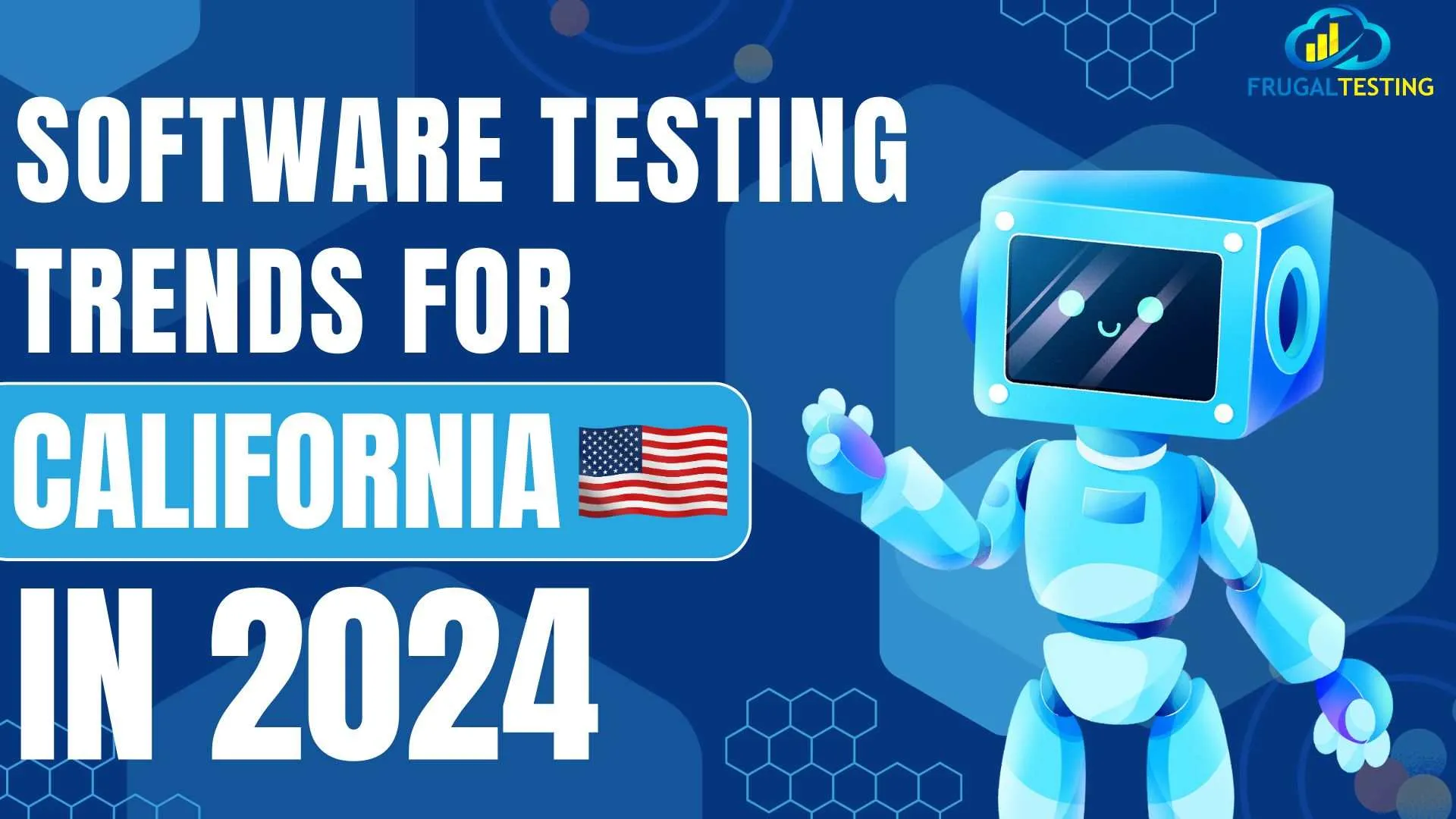

%201.webp)
